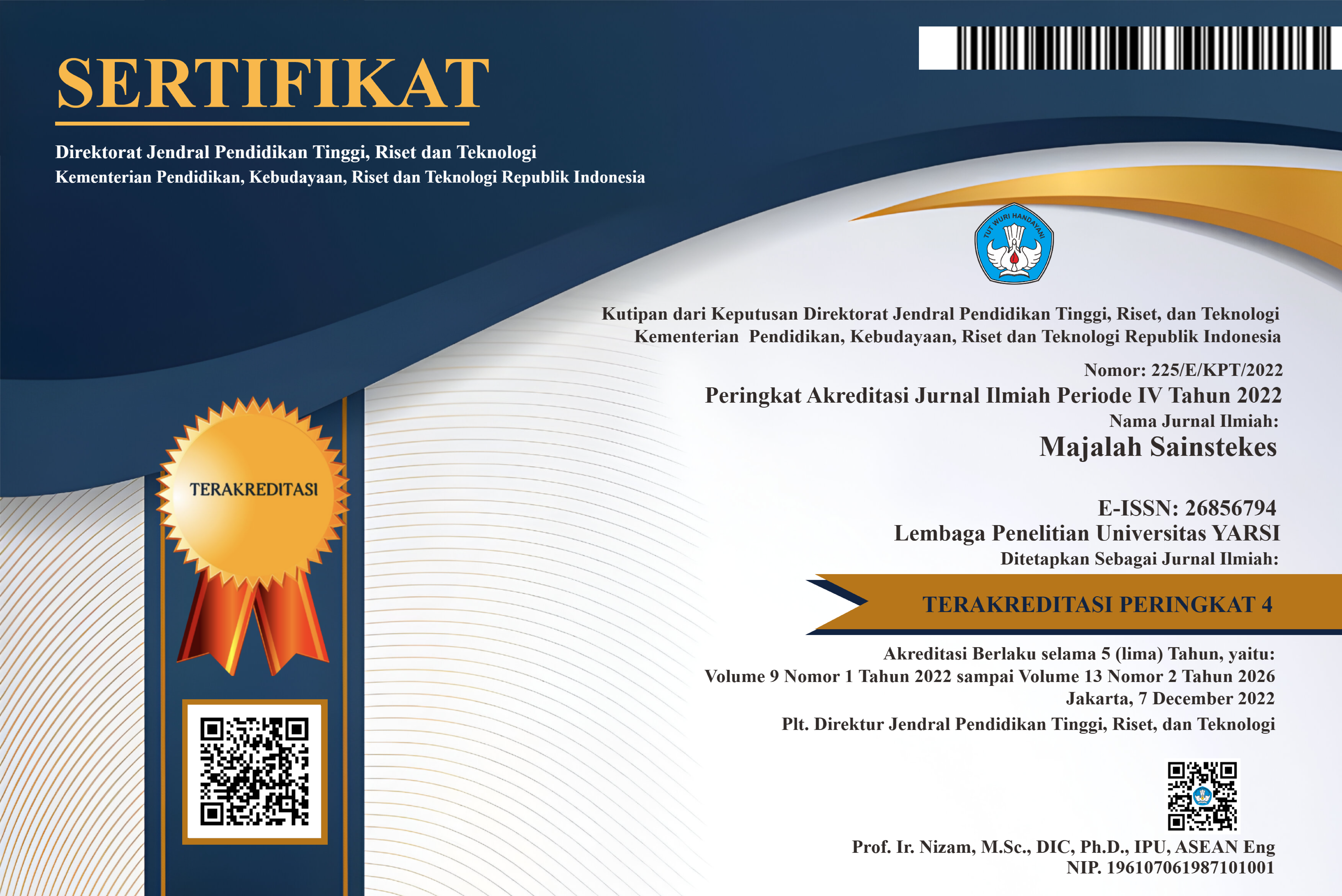Pemahaman Muslim Berlangganan Restoran Halal: Peran Logo Halal dan Sikap Konsumen di Kota Bogor
Keywords:
halal logo, MUI certification, restaurant and consumer’s perceptionAbstract
The purpose of this study is to investigate the perception of Muslim costumers who always subscribing Halal restaurant without any doubt whenever they find Halal logo in restaurant or without it. This research is already finished with supported of SPSS ver.23. 200 respondents were giving the contribution to make this research. The result shows that despite all the hypothesis testing were investigate significantly, the mediation of consumer’s attitude was significantly mediate them to subscribe Halal restaurant. Which is the Muslim of Bogor were keep the Islam rule as an obligation to always consume permissible food and beverage in guarantee Halal in restaurant.References
Baron, R.M., David, A.K..1986. The Moderator–Mediator Variable Distinction in Social Psycholog- ical Research: Conceptual, Strategic, and Statistical Considera- tions. Journal of Personality and Social Psychology. 51 (6):1173–82.
Bonne, K., & Verbeke, W. 2008. Religious values informing halal meat production and the control and delivery of halal credence quality. Agriculture and Human Values. 25(1), 35-47.
BPS, Jakarta. 2010. Jakarta in figures 2010. BPS, Jakarta 2010. Publication Number: 31550.1002. BPS Catalogue: 1102001.31.
Dali, N., Sulaiman, S., Samad, A. 2007. Halal Products From The Consumers Perception. An online survey:1-64
Dyck, J., Woolverton, A. E., Fahwani, Y.,R. 2012). Indonesia’s Modern Food Retail Sector: Interaction with Changing Food Consumption and Trade Patterns. United States Department of Agriculture. Issue, 9. Pp. 37.
Firman, J. 2010. Consumer Attitudes Toward Mobile Advertising. Department of Marketing and management. Aalti University. pp.111.
Hayati, A.T., Khairul, A.M. 2009. An overview of Malaysian food industry: The opportunity and qualityaspects. Pak. J. Nutr., 8: 507-517
Ibrahim, Y., & Vignali, C. 2005. Predicting Consumer Patronage Behaviour in the Egyptian Fast Food Business. Innovative Marketing. 1(2), 60-76
Mazis B., M., Raymond A.M. 1997. Consumer perception of health claims in advertisements and on food labels. The Journal of Consumer Affairs. 10-26.
Nunnally, J., Bernstein, L. 1994. Psychometric theory. New York: McGraw-Hill Higher, INC; 1994.
Prasad, R.,K.,Y. 2012. A Study of Consumers, Retail Format Choice & Patronage Behaviour in Food & Grocery Retailing (With Special Reference to Neighbourhood Kirana Stores and Supermarkets in Twin Cities of Hyderabad & Secunderabad). 294-313.
Reuters, T. 2016. Annual Report 2016. Published on March 9, 2017.
Smith, M.M.. 2015. Impact of environmentally friendly packaging on consumers' attitudes and patronage intentions toward apparel retail brands. General Human Environmental Sciences Undergraduate Honors Theses. Paper 13.
Soesilowati, E.S., Jusmaliani, U.K., Yani, M., Diah, S. 2010. Business Opportunities for Halal Products in the Global Market: Muslim Consumer Behaviour and Halal Food Consumption, J. Indones. Soc. Sci. Hum. 3:151-160
Tawfik M.S. 2008. Intention to Patronage Halal Restaurants among Malaysian Muslims an Issue of Halal Perception. Universiti Sains Malaysia. April 2008
Tawfik, S.M. & Aminul, Md., I. 2011. Factor Influencing Malaysian Muslim to Patronage Halal Restaurants-Ambience as a Mediator. Business Review. 6(2).
Fishbein, M., Ajzen, I. 1975. Belief, Attitude, Intention and Behavior: An introduction to theory and research. Reading, MA: Addison Wesley.
Wilson, J.A.J. 2012. The new wave of transformational Islamic marketing: Reflections and definitions. Journal of Islamic Marketing, 3(1): 5-11.
Yoo & Naeyon. 2014. Predicting consumer attitude and patronage intention toward fast fashion retailers: an illustration from U.S. college students. Retrieved from the University of Minnesota Digital Conservancyhttp://hdl.handle.net/ 11299/169381.

 Andika Nuraga Budiman
Andika Nuraga Budiman












